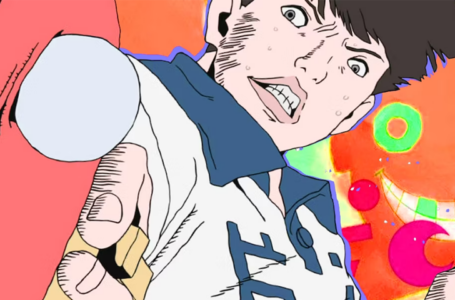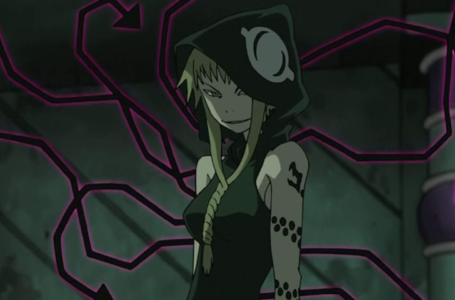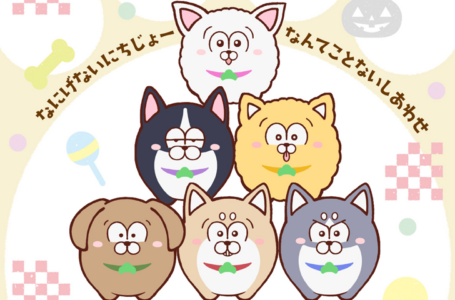Dissecting the bizarre battle-royale anime Juni Taisen: Zodiac War
Juni Taisen: Zodiac War was a light novel written by Nisio Isin and published in 2015, and in 2017 was adapted into an anime consisting of 12 episodes.
You’ll often find me covering topics I find underrated, and the unnecessary critical and underwhelming reception towards this anime adaptation is no different. It’s not like I watched the show just for the high-heeled strutting, buff bunny tailed necromantist, Usagi or anything. (Sure – Ed.) But I came back from viewing Juni Taisen on its initial airing with a lot more plaguing my mind about the show — both positives and negatives.
It’s a peculiar watch for sure, and one I wholeheartedly appreciate and adore for its unique charms.
Spoilers are discussed below, as well as triggering subjects on characters’ traumas in the show.
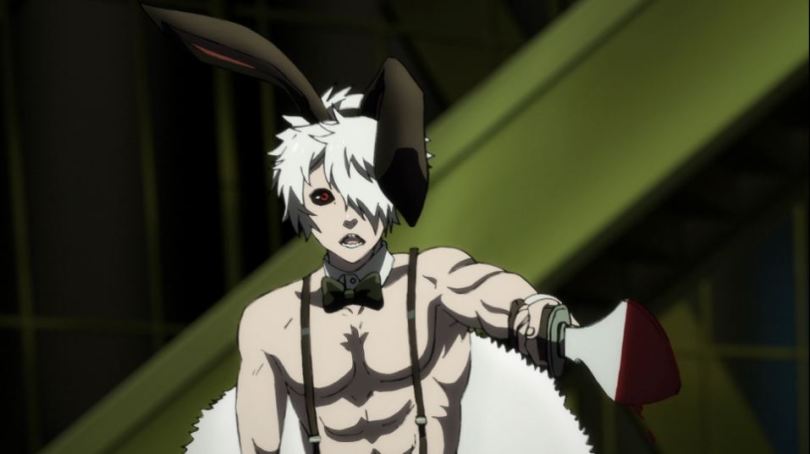
Not like any other battle royale
Nisio Isin will not be an unfamiliar name as he is best known for his Monogatari series, as well as the Zaregoto series that helped establish him as a mangaka. My personal favourite piece of his is the spinoff novel Death Note Another Note: The Los Angeles BB Murder Cases.
As a novelist he puts a massive amount of emphasis on character interactions and dialogue, as these are the driving force behind narrative and characterisation. As we might expect from a a writer who is not afraid of taking risks, in Juni Taisen Isin attempts to deconstruct and criticise the battle royale genre. Yet his efforts in this regard tend to go underappreciated, or at the very least are misunderstood. This is no surprise considering how convoluted his works may appear on the surface.
Juni Taisen’s aesthetic feels very similar to that of Danganronpa, with both having wildly eccentric characters with hidden motives and a surprising amount of depth if you go looking deep enough. But as a battle royale anime, you won’t be spotting many direct parallels with other shows of a similar focus such as Mirai Nikki and the Fate series. Juni Taisen is an acquired taste, to put it simply. To appreciate it, a few aspects of it have to be acknowledged and accepted to truly enjoy the show as a unique experience.
The most obvious one is the fact that order in which characters will die is revealed fairly quickly, making the rest of the show feel somewhat redundant. The signs are everywhere, from the opening and ending sequences, to the episode titles, and simply by having knowledge of the order of the Chinese Zodiacs. This was a genuine concern and criticism of the show when it was airing — after all, isn’t a battle royale supposed to be all about guessing who the victor will be?
All about those character studies
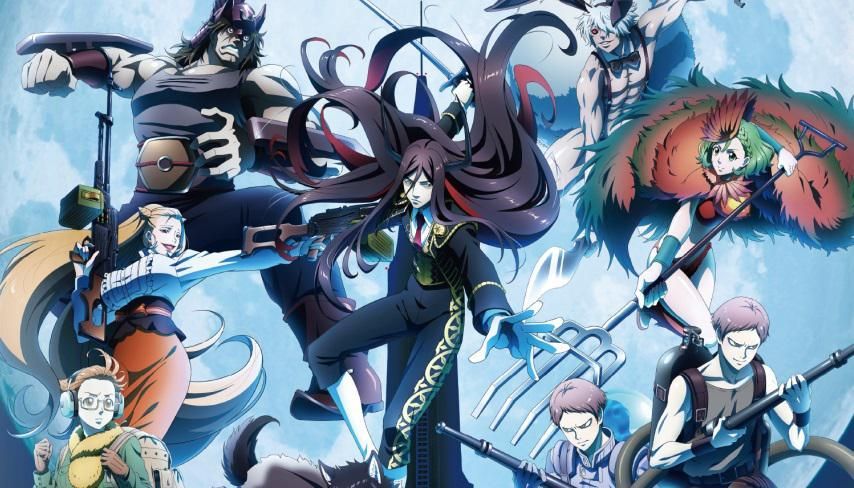
It’s awkward to have to put a spoiler disclaimer for an anime where it actually embraces spoilers, because Juni Taisen did something different with the formula. Instead of being unpredictable, the show focuses on playing around with the inevitable nature of a battle royale setting, where everything is predetermined and set in stone from the very beginning. If the focus is not on the excitement of guessing who wins, then be reassured that Juni Taisen still leaves plenty to ponder in typical Isin fashion.
The characters of Juni Taisen take agency over the battle royale setting. With each episode playing host to a variety of backstory revelations concerning a particular character, there are plenty of different perspectives and themes explored. This brings each competitor out as a well-rounded and fleshed out individual with just enough screen time to explain their motivations, and give the audience an overall understanding of their character.
Funnily enough, this focus on characters in a battle royale setting makes Juni Taisen feel all the more unique compared to other similar shows, since we learn of each character’s origins and reasons as to why they are how they are during the death game. Juni Taisen actually has very little to tell as a battle royale show thanks to its predictability; instead it is about exploring its short-lived characters, cutting their growth and arcs in half but giving them agency over the premise unlike anything that came before and after it.
Battle royales are usually mere bloodbaths, providing the thrill of witnessing utter chaos and bloodshed, and while Juni Taisen has thrilling action and gory segments, it gives meaning to each character despite us knowing of their brutal fate in advance. They are more than their deaths, and even at the moment of their defeat, many accept it with dignity, even if the cause of it goes against their morals.
For example, the Boar, Inounoshishi, dies shamefully after bigging herself up for an easy win, while the Sheep, Hitsujii, is killed by one he deemed to be inferior before he manages to set his master plan into motion. These are just a few examples of the amount of heartbreaking and tragic irony in the show considering many of the character’s unfortunate deaths. Some are deserving of the fate they meet, while others certainly are not.
Another unusual aspect of the show is that no character participating in the life or death game was randomly selected to compete. They were trained and knew this day would come. They may be killers, they may have carried out bad deeds in order to participate in the game, but each character is undoubtedly morally grey — neither completely innocent, nor evil.
A great example of this is the Monkey, Sharyu, who may have the best of intentions but still harms others: she has witnessed bloodshed and war as a mediator, yet stands by her ideology to this day even despite this leading to others’ deaths.
On the other hand, abusive guardians run amok in many backstories, setting up different character studies that greatly differ from one another as they look into the everlasting effects abuse can have on a child.
Inounoshishi’s ruthlessness and cruelty comes from her mistreatment at the hands of her father, and the cold shoulder from her mother’s strictness. She ultimately ends up damaging the only person who truly loved her due to this mistreatment. This is further explored in her exclamation of her wish being a harem.
While she seems overjoyed at the thought of having one and it’s played off for comedy, it still hits on the suffering of her upbringing and actions where the only way she can feel loved is with strangers, because she destroyed the one connection she ever had. She’s an outrageously loathsome character, and yet she is not completely to blame for her attitude and behaviour as an adult — she never knew what a normal, loving family was at such a young and tender age.
In contrast, we have the Chicken, Niwatori. She is easily more sympathetic despite how she behaves in the life or death game because of how transparent she is. Unlike Inounoshishi, there is a penetrating loneliness and uncertainty in everything Niwatori says and does. It becomes evident as to why when we get to her backstory, where Niwatori lost her memory before killing her abusive parents. She was then adopted into the Niwa family who accepted her only because she is a prime candidate to train and shape into a spy due to her blank slate of a personality and memories.
Her wish alone exposes her vulnerability and suffering as a cry for help, as a part of her wants to understand and discover who she truly is. She mentions how she lacks confidence and wants to know how to tell right from wrong; this is amazingly heartfelt and genuine even after everything we’ve seen her she do up until this point. Her lost memories have left a void in her, and her upbringing has made her unable to establish her true self due to her “lost” time.

Exceptionally flawed
It is evident at this point that Juni Taisen attempted something different with the genre. And while this is greatly appreciated, the anime still stumbles a number of times along the way to what many consider to be a rather weak ending — though this is actually an opinion I do not agree with.
The action sequences are always worthwhile despite the fact we know the fate of the battlers in advance; the animation is fluid and the fights engaging, and it’s ironic how these battles play out with the victor often appearing weaker at the outset. While the plot as a whole is predictable, the battles, funnily enough, are not. Unfortunately the character studies are where Juni Taisen starts to fumble a bit.
The characters often fall on either side of the scale of “I don’t want this character to die” to “I won’t care if this character dies”. For example, it’s made immediately clear how dishonorable and awful Inounoshishi is, making her death feel well deserved to most, while Sharyu desires to do good for the world, adding a conundrum at the point of her death. Sharyu deserved to live because she would have given back to the world the most compared to everyone else if she had survived.
The anime had to adapt a very small amount of each character’s background and story from the novel, making the overall biography of each one closely sourced but rather bite-sized in the anime. By not expanding or putting more emphasis on their emotional origins, many of their experiences lose their impact and mean viewers won’t bat an eye at their on-screen exits.
Most of the characters’ important moments — if not all of them — are told instead of shown through their inner monologues. This further jeopardises how emotionally invested we become to the majority of the characters; we simply are unable to fully grasp and understand the true extent of their characterisation.
The very worst instance of this is in the character of the Ox, Ushii, whose backstory was shunted into the Tiger, Tora. This made Ushii the only warrior lacking a major amount of depth compared to everyone else. It’s a legitimate complaint when considering Juni Taisen as an anime adaption of Nisio’s original work.
Despite all this, there’s still plenty to praise about the show.
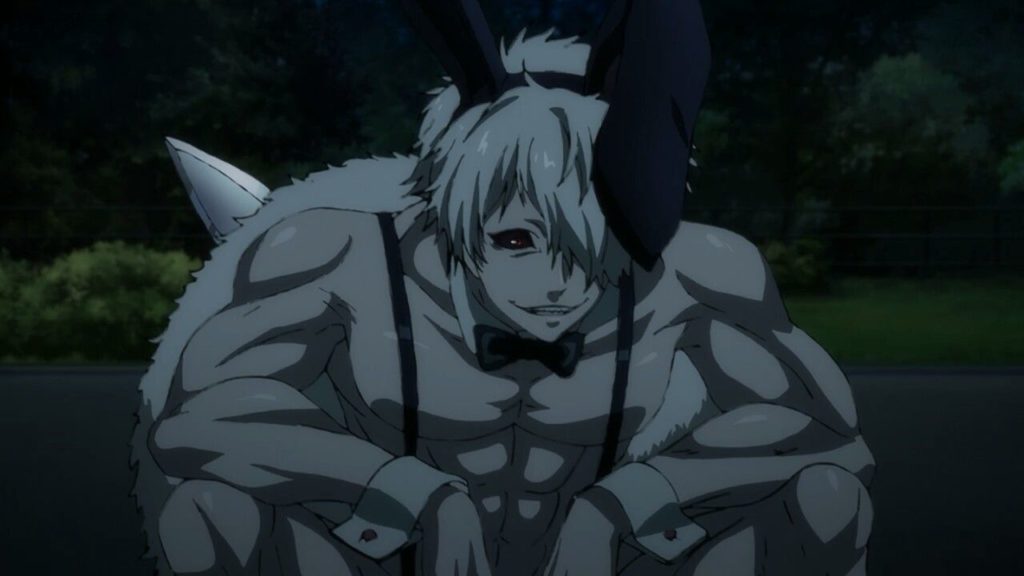
Purpose
While the show loves to make us question its core meaning, the characters are searching for their own meanings as to why they even exist.
The Horse warrior, Uuma, feels worthless despite his strength, and fears ever losing in a fight because his life is currently meaningless, while the twin brothers of Dragon (Ani) and Snake (Otouto) separately hint to their fixation on money meaning they’ll never feel truly happy. This feeling is natural to all humans, and it’s interesting how it manages to raise its head in even the most unexpected of characters. It reinforces that despite how truly awful and dishonorable a character might be, they can still be sympathetic — or at the very least they have some layers to them.
This focus on there being meaning in a person’s life is perhaps best explored through the main character Nezumi, the Rat. His power of reliving multiple timelines has him seeing life as meaningless since he can simply choose what his reality will be and see every outcome to anything. He’s left wondering if anything has any meaning, or if anything is worth doing.
This is further explored through Sharyu’s characterisation, and Nezumi’s discussion with her on their different perspectives and opinions on pacifism vs realism made for the most intriguing and compelling dialogue across the 12 episodes.
Her idealism is juxtaposed with the mass amount of cynicism presented by multiple characters, such as the Tatsumi twins and the Ox. The anime leans heavily on the side of grim and negative perspectives much more; not only in the story’s main character as Nezumi, but for Sharyu’s fate to be at the hands of the most violent warrior, Usagi. It is a massive blow to her ideology and hammers home the tragedy of her death in particular.
Additionally, a handful of characters have an unexpectedly heartfelt and emotional backstory to them. Hitsujii initially appears to view war as entertaining and seems to be participating in the battle for wealth, yet his backstory shows how he is grateful he has lived a long and healthy life to see the birth of his grandchild. He even took his place of his grandson who was meant to be the one participating in the death game to protect him.
And in the same vein, the Dog warrior Dotsuku adopts a daughter who he loves and cares for, and is his reason for living. It easily makes him one of the most sympathetic characters of the bunch. He never did deserve having his skull caved in. Many characters are seemingly good and bad — but since we know in advance that the Rat wins, where does that leave the viewer?
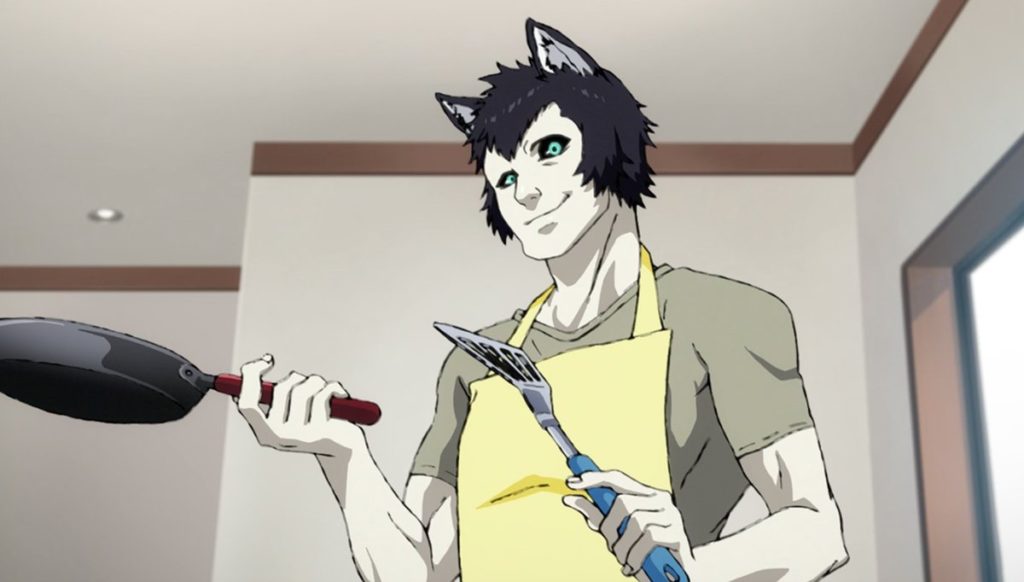
What’s the point?
To sum up, everything that happens in Juni Taisen is futile, and nowhere is this more evident than its ending, which is widely disliked. It ends on such a blasé note where everything that has transpired means nothing to the main character and in turn, to the audience. Is this a painful slap in the face for wasting our precious time, or is it something much more meaningful?
As we touched upon above, Nezumi encompasses the human craving to find meaning in everything. By the latter part of the show, he even states that the Ox’s overwhelming strength and power means nothing when it comes to doing the right thing, because even in Nezumi’s very own, relived experiences, doing the “right” thing is seemingly impossible.
Even Nezumi, who can choose his own path, doesn’t feel in control, and this sense of inevitability is further shown through his confrontation with Duodecuple where there is no escape for Nezumi unless he explains his power and is faced with the prize for winning: a wish. But was it worth it?
As mentioned, it’s evident there’s a focus on characters, but there’s a lot more going on in the background of this bizarre anime. The whole point of the 12 competitors doing battle to the death is supposedly to sustain a minimal amount of peace across the world, which has been torn apart by ongoing war between these 12 families.
The ending can take a different, less dreary meaning by noticing an aspect of Juni Taisen’s world that it could have explored in more detail: the idea that war is good for absolutely nothing. Even the victor of the death game comes out for the worse, and hasn’t truly won anything. Nezumi’s mental strain and inner turmoil brought about by attempting to think of a wish without consequences becomes so hard that he desperately settles on forgetting everything as the best answer.
It’s so simple, yet so effective as the ending to Juni Taisen after everything Nezumi has gone through.
Conclusion
Isin wrote the novel as a critique of the battle royale genre, as Juni Taisen is unlike any other battle royale piece of literature/media. When we think of battle royale, what are the typical events that transpire? Unexpected deaths, mindless brutality and kills, selfless heroes, and a justified ending? None of these apply to Juni Taisen.
It has its own take on the battle royale formula with plenty of twists and foreshadowing to take notice of despite its seeming predictability, and is an entertaining enough watch even with its numerous flaws.
You can watch the anime on Crunchyroll.
Join The Discussion
Rice Digital Discord
Rice Digital Twitter
Rice Digital Facebook
Or write us a letter for the Rice Digital Friday Letters Page by clicking here!
Disclosure: Some links in this article may be affiliate links, which means we may earn a small commission if you make a purchase after clicking on them. This is at no additional cost to you and helps support Rice Digital!
- Sigh of the Abyss: Shadow Bonds – Prologue Review - October 7, 2023
- Is She The Wolf? is wickedly addicting TV - October 6, 2023
- The steady consumption of Slow Damage - October 5, 2023




